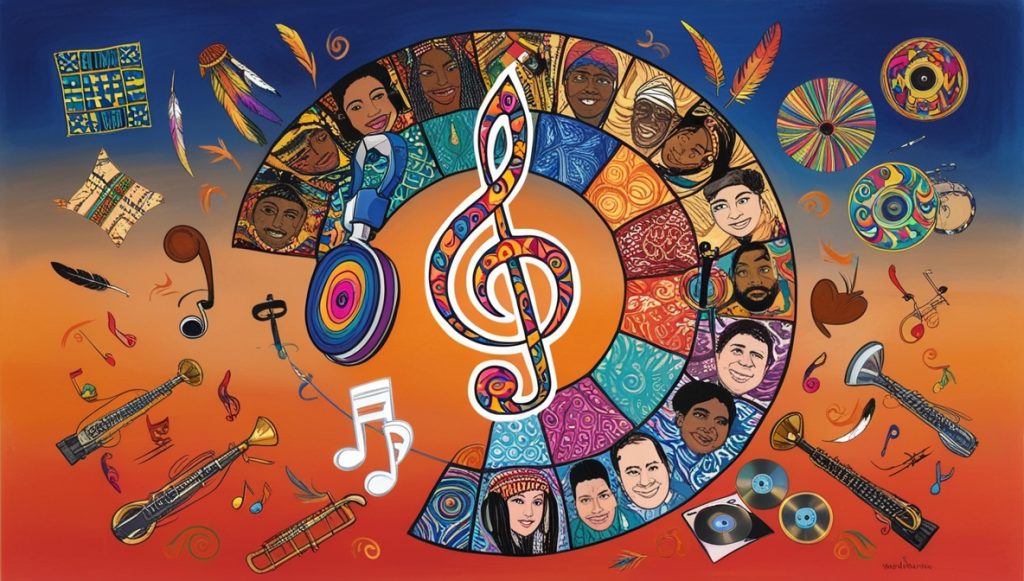Music is deeply embedded in human culture and serves as a powerful form of expression, communication, and identity. Across the world, cultural influences have shaped music in unique ways, allowing it to evolve and reflect the values, beliefs, and experiences of different societies. The relationship between culture and music is symbiotic, as music not only reflects cultural shifts but also has the power to influence and transform the culture itself. Below, we explore some of the key ways that culture has shaped the evolution of music across the globe.
Music as a Reflection of Cultural Identity
Music has long been a means for communities to express their cultural identity. In many cases, traditional music is deeply intertwined with the history, language, and values of a particular group of people. For example, Indigenous music from various cultures around the world, including Native American, African, and Australian Aboriginal traditions, often incorporates instruments and vocal styles that reflect the environment, storytelling, and rituals of those communities.
In many regions, music also serves as a way to preserve cultural heritage. Folk music, for example, plays a key role in keeping cultural narratives alive. In countries like Ireland, Bulgaria, and India, folk music tells stories of historical events, religious beliefs, and daily life, ensuring that the cultural identity of those regions is passed down through generations.
The Globalization of Music
The advent of modern technology and media has led to the globalization of music, allowing different cultures to share their musical traditions on a global scale. This cross-cultural exchange has led to the blending of styles and the creation of entirely new genres. For example, reggae music, which originated in Jamaica in the 1960s, quickly spread to the rest of the world, influencing genres like hip-hop, punk, and rock.
In a similar vein, the rise of K-pop (Korean pop) demonstrates how cultural music traditions can gain international popularity. Drawing from a mix of Western pop, hip-hop, and electronic music, K-pop has transcended its South Korean roots to become a global phenomenon, reflecting how music can bridge cultural divides and influence popular culture around the world.
Religious and Spiritual Influences on Music
Religion and spirituality have been significant cultural influences on music for millennia. Religious ceremonies and rituals in various cultures incorporate music as an essential component of worship and community bonding. In Christianity, hymns and gospel music have played a central role in church services and religious gatherings, creating a sense of spiritual unity among believers.
Similarly, Islamic cultures have long incorporated the call to prayer (Adhan) and Sufi music traditions, such as Qawwali in South Asia, as a means of spiritual reflection. Hinduism and Buddhism also integrate music into their religious practices, with devotional songs (bhajans) and chants being central to spiritual rituals.
Cultural Movements and Social Change Through Music
Music has historically been a tool for social movements and cultural change. In many cases, it has served as a voice for oppressed or marginalized communities, amplifying their struggles and inspiring collective action. For instance, during the Civil Rights Movement in the United States, songs like “We Shall Overcome” became anthems of hope and solidarity for African Americans fighting for equality.
Similarly, protest music has been a hallmark of political and social movements worldwide. The anti-apartheid movement in South Africa, for example, saw the emergence of musicians like Miriam Makeba and Hugh Masekela, who used their music to resist oppression and inspire change. In Latin America, artists like Victor Jara and Mercedes Sosa were influential in advocating for social justice through music during political upheavals.
Technology and Its Impact on Cultural Music
The development of recording technology, radio, and streaming platforms has had a significant impact on the dissemination of cultural music. As a result, people around the world now have access to a vast array of musical traditions, helping to create hybrid genres and inspire collaboration across cultural boundaries. While this has led to greater diversity in music, some argue that it has also contributed to the homogenization of global music styles, as popular genres dominate the airwaves.
Conclusion
Music is a profound reflection of the cultural landscape from which it emerges. It is shaped by history, religion, and social dynamics, while simultaneously shaping those very aspects of culture. In today’s interconnected world, music continues to be a powerful medium for cross-cultural exchange, fostering understanding, collaboration, and innovation across borders. Cultural influences on music are dynamic, and as the world evolves, music will continue to be a defining feature of human expression and identity.



